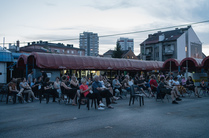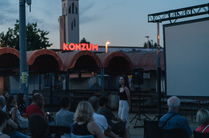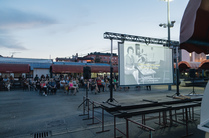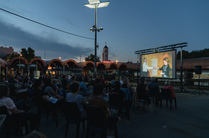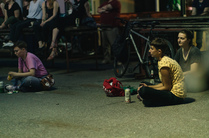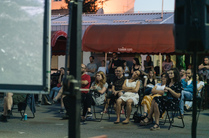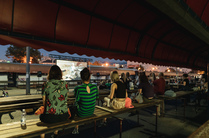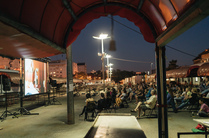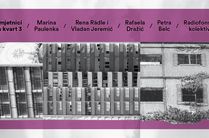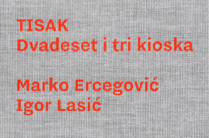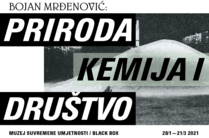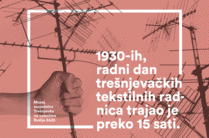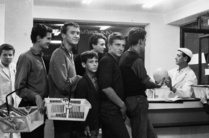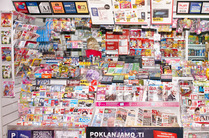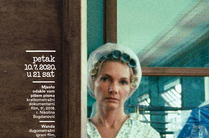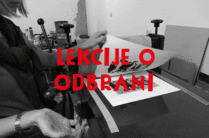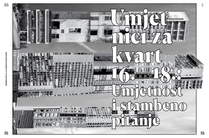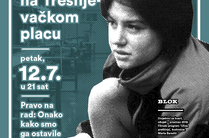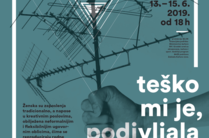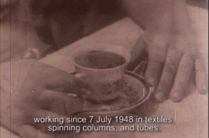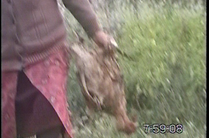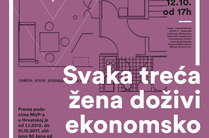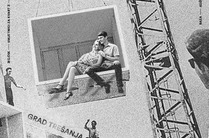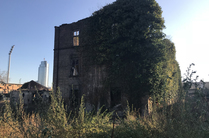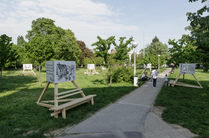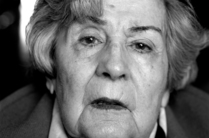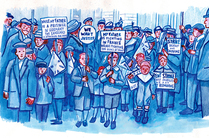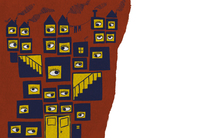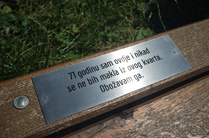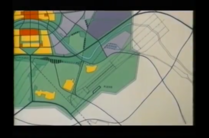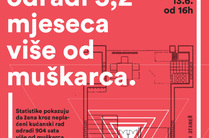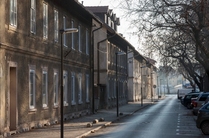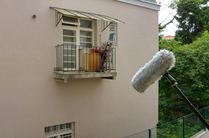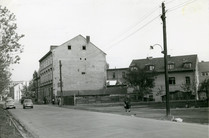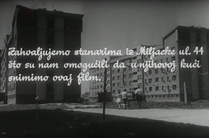OPEN-AIR CINEMA AT THE TREŠNJEVKA MARKET
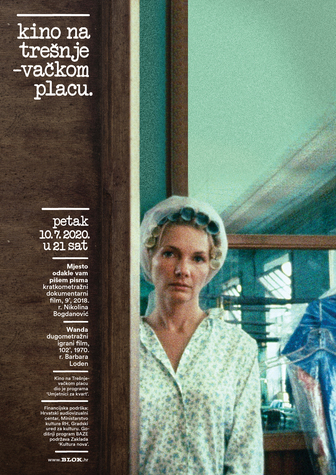
FRIDAY, JULY 10, 2020, at 9 p.m.
For the fifth year in a row, we are turning the Trešnjevka market into a free open-air cinema.
THE PLACE I AM WRITING YOU LETTERS FROM
SHORT DOCUMENTARY, 9 MIN, 2018
DIRECTED BY: NIKOLINA BOGDANOVIĆ
WANDA
FEATURE, 102 MIN, 1970
DIRECTED BY: BARBARA LODEN
The selected films continue the program's thematic preoccupations –questions related to the legacy of women's cinema and intergenerational solidarity. The screening will begin with a short documentary THE PLACE I AM WRITING YOU LETTERS FROM directed by NIKOLINA BOGDANOVIĆ. The film centers around a director's family member moving abroad in the 1950s. The story is told through photographs and descriptions, which seek to document but instead idealize the protagonist's new life in the West.
The second film we are showing is a cult feminist film WANDA, written and directed by BARBARA LODEN. It was shot in 1970, when the New Hollywood movement was in full swing. The movement paved the way for the American auteur cinema, as it deviated from the dominant classical narrative style and focused on characters who did not, or did not want to fit in. However, contrary to the glamorization of outsiders generated by the most prominent film in this context, Bonnie and Cyde, directed by Arthur Penn, Barbara Loden represents her protagonists in a raw, realistic manner, as complete losers. Wanda tells the story of a miserable working class woman who, due to the pressure of social expectations and her inability to perform daily tasks, leaves her husband and their two children. Economically dependent on her husband and unqualified for any job, Wanda is left with no choice – she leaves rural Pennsylvania and abandons herself to aimless wandering. While drifting, she meets Dennis, a petty crook who convinces her to be his accomplice in a hopeless bank robbery attempt.
Wanda belongs to the road movie genre, and is close to the cinéma vérité style. It is shot in the documentary manner, with a hand-held camera, and most of the scenes and dialogues are improvised. Wanda's aesthetic choices are primarily the result of a relatively low budget – Loden had a crew of only four people, and a cast featuring only two professional actors, she herself playing the lead role. Although it won the International Critics Award at the 1970 Venice Film Festival, the film had been overlooked by critics for years, being equally absent from lists of the most critically acclaimed films of the '70s, as well as from those reviewing feminist films, which gained momentum in the same period. For the former, the point of view of a marginalized, poor woman was cinematically uninteresting and too pessimistic, and the latter simply thought the main protagonist's apathy was not emancipatory. And indeed, as film critic and theorist BÉRÉNICE REYNAUD notices, "Wanda does not “go places,” she’s not socially mobile, and her story is non-directional: at the end, she is no less in the lurch (alone, without money, drifting) than she was at the beginning.’’ The film is based on a true story, and Loden cited her own working-class background and experience as the basis of her identification with the character of Wanda: “I have a lot of pain and suppressed anger in me, just like Wanda… Wanda has been numbed by her experiences, and she protects herself by behaving passively and wandering through life hiding her emotions.’’
Contemporary readings by theorists such as Reynaud, NATHALIE LÉGER, KATE ZAMBRENO, and others contributed to the reception of Loden as a feminist author. They interpret Wanda’s apathy as a defense reaction to the hopelessness of the situation she found herself in, and show that the historical importance of the film lies in Loden’s ability to reveal, through minimalist performance and a direct, realistic representation, the extent of marginalization under capitalism and patriarchy.
Film curator: BARBARA GREGOV
FINANCIAL SUPPORT: CROATIAN AUDIOVISUAL CENTRE, MINISTRY OF CULTURE OF THE REPUBLIC OF CROATIA, CITY OFFICE FOR CULTURE. THE BAZA'S ANNUAL PROGRAM IS SUPPORTED BY THE "KULTURA NOVA" FOUNDATION.
